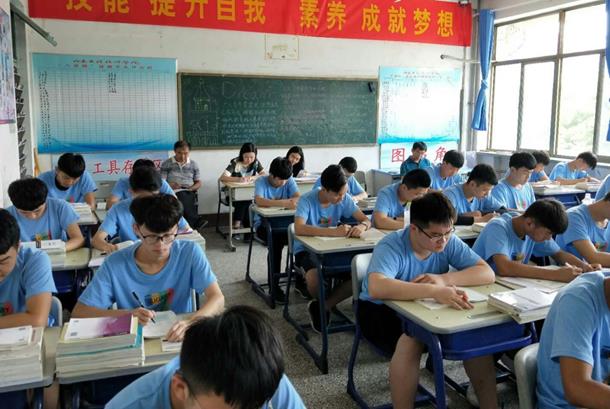 To guarantee the smooth progress of the teaching-reform pilot projects, enhance the implementation of reforms, regulate management, and improve teaching quality, from 26-30 June, 2018, the Experimental School of the Open University of China (OUC) carried out an inspection of its four pilot projects: the internet-based -teaching project; the "skills and literacy" training project; the project connecting vocational with open education; and the project integrating non-degree and degree education. The school received the inspection reports on 5th July.
To guarantee the smooth progress of the teaching-reform pilot projects, enhance the implementation of reforms, regulate management, and improve teaching quality, from 26-30 June, 2018, the Experimental School of the Open University of China (OUC) carried out an inspection of its four pilot projects: the internet-based -teaching project; the "skills and literacy" training project; the project connecting vocational with open education; and the project integrating non-degree and degree education. The school received the inspection reports on 5th July.
This inspection had five groups inspecting 12 branches (study centres) in terms of project implementation, organisation and implementation of teaching reforms, teaching conditions and classroom environment, organisation and implementation of assessment, and progress assessment through self-analysis, review of archives, teacher-student discussion, and on-the-spot classroom monitoring. The groups also gave feedback on problems with project implementation and provided guidance, collecting the advice of inspection units on teaching, management and reforms at the OUC and the OUC Experimental School.
 The inspection group engaged in class monitoring.
The inspection group engaged in class monitoring.
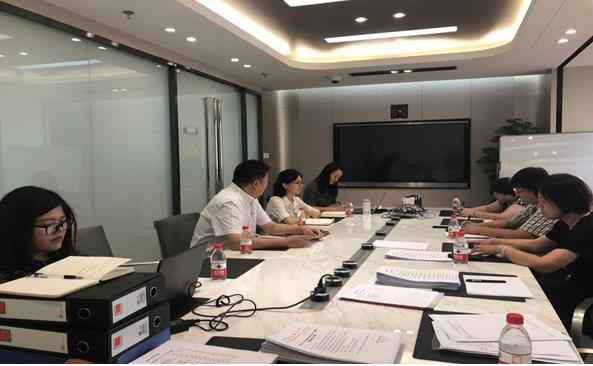
An inspection group listening to a study centre`s self-analysis.
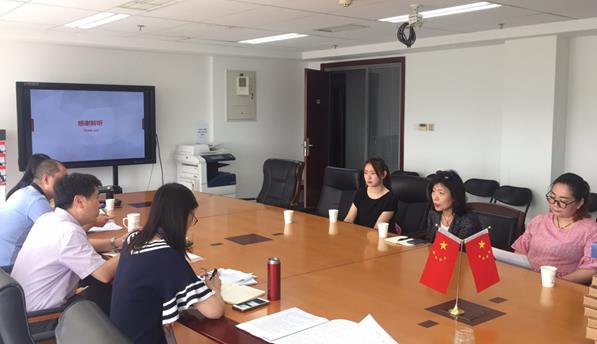
An inspection group talking with students.
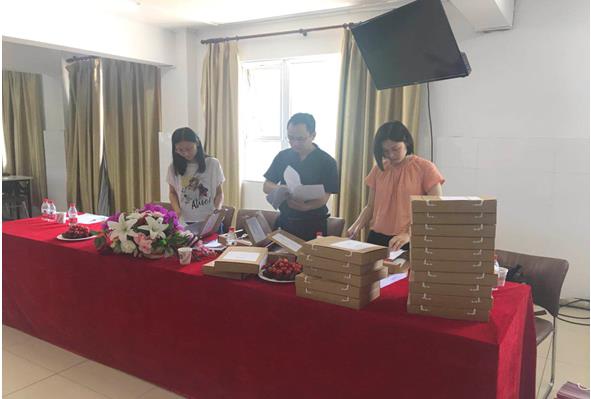
An inspection group reviewing archives.
On the afternoon of 5th July, the OUC Experimental School received the inspection reports, with Liu Chen, vice president of the OUC, group members, and all staff of the OUC Experimental School attending the meeting. Guo Qingchun, director of the OUC Experimental School, presided over it.
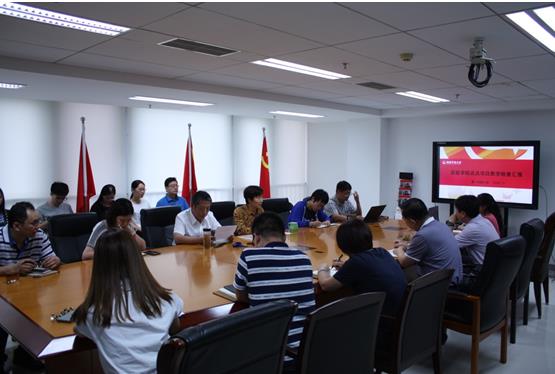
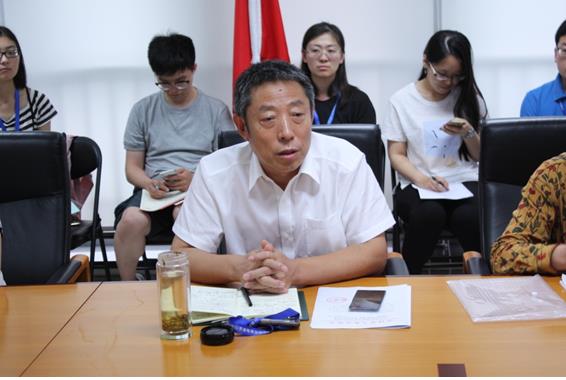
After listening to each report, Liu Chen pointed out that this inspection has pulled the OUC Experimental School and the study centres closer together. Difficulties and needs have been uncovered, and careful thought has been given to follow-up work on the projects.
Liu Chen affirmed the achievements of each pilot project and stated requirements for the follow-up work. He said that the internet-based teaching project should be accelerated, and linked to the OUC`s hybrid-teaching model and the "Integration of Six Networks" learner-development model to explore the formation of new ways of teaching at the OUC, providing guidance for network-wide teaching, course registration, and accreditation. The "skills and literacy" training project, and the project connecting vocational and open education, should make use of the advantages of the partner schools in skills training, integrate their training plans with those of the OUC, and guarantee the integrity and quality of the training without increasing the burdens on students. Meanwhile, the project integrating non-academic with academic courses should make fine adjustments to its operations. Project enrollment and the setup of teaching sites are arranged by the Experimental School of the OUC, while the partner is in charge of the content of non-degree education, and the OUC Experimental School of training accreditation.
Liu Chen also pointed out that each pilot project should consider requests from the cooperation units as a basis for the steady and orderly progress. He also stated that the plan for each project should undergo enhancement while the project is in progress, that some majors should be expanded or opened based on staff arrangements at the OUC Experimental School, and that tutor qualification and hiring systems should be put in place.
By Shi Lei, OUC